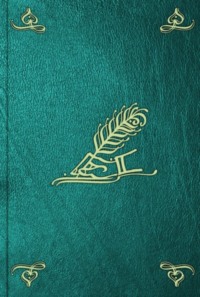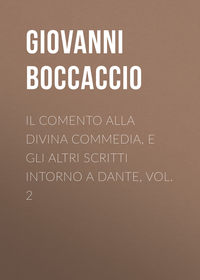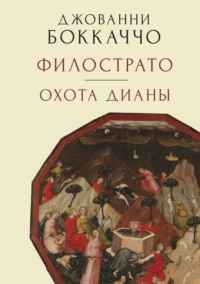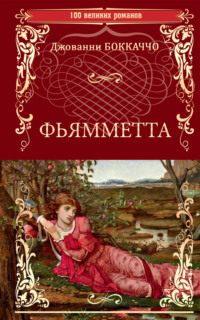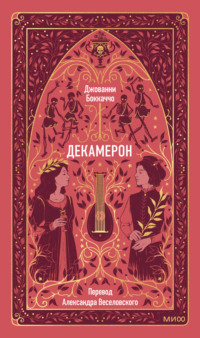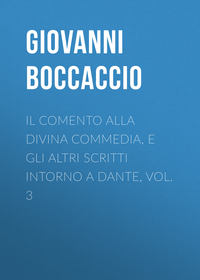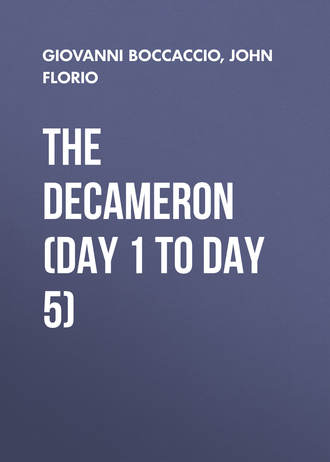 полная версия
полная версияThe Decameron (Day 1 to Day 5)
The neighbours, well acquainted with this Ruffians rude conditions, speaking in gentle manner to Andrea, said. Shift for thy selfe (good man) in time, and tarrie not for his comming downe to thee; except thou art wearie of thy life, be gone therefore, and say thou hast a friendly warning. These words dismaying Andrea, but much more the stearne oathes and ugly sight of the Ruffian, incited also by the neighbours counsell, whom he imagined to advise him in charitable manner: it caused him to depart thence, taking the way homeward to his Inne, in no meane affliction and torment of minde, for the monstrous abuse offered him, and losse of his money. Well he remembred the passages, whereby (the day before) the young Girle had guided him, but the loathsome smell about him, was so extreamely offensive to himselfe: that, desiring to wash him at the Sea side, he strayed too farre wide on the contrary hand, wandring up the streete called Ruga Gatellana.
Proceeding on still, even to the highest part of the Citie, hee espied a Lanthorne and light, as also a man carrying it, and another man with him in company, both of them comming towards him. Now, because he suspected them two of the watch, or some persons that would apprehend him: he stept aside to shunne them, and entred into an olde house hard by at hand. The other mens intention was to the very same place, and going in, without any knowledge of Andreaes being there, one of them layd downe divers instruments of yron, which he had brought thither on his backe, and had much talke with his fellow concerning those engines. At last one of them said, I smell the most abhominable stinke, that ever I felt in all my life. So, lifting up his Lanthorne, he espied poore pittifull Andrea, closely couched behinde the wall. Which sight somewhat affrighting him, he yet boldly demaunded, what and who hee was: whereto Andrea aunswered nothing, but lay still and held his peace. Neerer they drew towards him with their light, demaunding how hee came thither, and in that filthy manner.
Constraint having now no other evasion, but that (of necessity) all must out: hee related to them the whole adventure, in the same sort as it had befalne him. They greatly pittying his misfortune, one of them said to the other. Questionlesse, this villanie was done in the house of Scarabone Buttafuoco; And then turning to Andrea, proceeded thus. In good faith poore man, albeit thou hast lost thy money, yet art thou highly beholding to Fortune, for falling (though in a foule place) yet in succesfull manner, and entring no more backe into the house. For, beleeve mee friend, if thou hadst not falne, but quietly gone to sleepe in the house; that sleepe had beene thy last in this world, and with thy money, thou hadst lost thy life likewise. But teares and lamentations are now helplesse, because, as easily mayest thou plucke the Starres from the firmament, as get againe the least doyt of thy losse. And for that shag-haird Slave in the house, he will be thy deaths-man, if he but understand, that thou makest any enquiry after thy money. When he had thus admonished him, he began also in this manner to comfort him. Honest fellow, we cannot but pitty thy present condition, wherefore, if thou wilt friendly associate us, in a businesse which wee are instantly going to effect: thy losse hath not beene so great, but on our words wee will warrant thee, that thine immediate gaine shall farre exceede it. What will not a man (in desperate extremity) both well like and allow of, especially, when it carrieth apparance of present comfort? So fared it with Andrea, hee perswaded himselfe, worse then had already happened, could not befall him; and therefore he would gladly adventure with them.
The selfe same day preceding this disastrous night to Andrea, in the chiefe Church of the Citie, had beene buried the Archbishop of Naples, named Signior Philippo Minutolo, in his richest pontificall roabes and ornaments, and a Ruby on his finger, valued to be worth five hundred duckets of gold: this dead body they purposed to rob and rifle, acquainting Andrea with their whole intent, whose necessity (coupled with a covetous desire) made him more forward then well advised, to joyne with them in this sacriligious enterprise. On they went towards the great Church, Andreaes unsavourie perfume much displeasing them, whereupon the one said to his fellow. Can we devise no ease for this foule and noysome inconvenience? the very smell of him will be a meanes to betray us. There is a Well-pit hard by, answered the other, with a pulley and bucket descending downe into it, and there we may wash him from this filthinesse. To the Well-pit they came, where they found the rope and pulley hanging ready, but the bucket (for safety) was taken away: whereon they concluded, to fasten the rope about him, and so let him downe into the Well-pit, and when he had washed himselfe, hee should wagge the rope, and then they would draw him up againe, which accordingly they forth-with performed.
Now it came to passe, that while hee was thus washing himselfe in the Well-pit, the watch of the Citie walking the round, and finding it to be a very hote and sweltring night; they grew dry and thirsty, and therefore went to the Well to drinke. The other two men, perceiving the Watch so neere upon them: left Andrea in the Pit to shift for himselfe, running away to shelter themselves. Their flight was not discovered by the Watch, but they comming to the Well-pit, Andrea remained still in the bottome, and having cleansed himselfe so well as hee could, sate wagging the rope, expecting when hee should be haled up. This dumbe signe the Watch discerned not, but sitting downe by the Wells side, they layde downe their Billes and other weapons, tugging to draw up the rope, thinking the Bucket was fastened thereto, and full of water. Andrea being haled up to the Pits brim, left holding the rope any longer, catching fast hold with his hands for his better safety: and the Watch at the sight heereof being greatly affrighted, as thinking that they had dragd up a Spirit; not daring to speake one word, ranne away with all the hast they could make.
Andrea hereat was not a little amazed, so that if he had not taken very good hold on the brim: he might have falne to the bottome, and doubtlesse there his life had perished. Being come forth of the Well, and treading on Billes and Halbards, which he well knew that his companions had not brought thither with them; his mervaile so much the more encreased, ignorance and feare still seizing on him, with silent bemoaning his many misfortunes, away thence he wandred, but hee wist not whither. As he went on, he met his two fellowes, who purposely returned to drag him out of the Well, and seeing their intent already performed, desired to know who had done it: wherein Andrea could not resolve them, rehearsing what hee could, and what weapons hee found lying about the Well. Whereat they smiled, as knowing, that the Watch had haled him up, for feare of whom they left him, and so declared to him the reason of their returne.
Leaving off all further talke, because now it was about midnight, they went to the great Church, where finding their entrance to be easie: they approached neere the Tombe, which was very great, being all of Marble, and the cover-stone weighty, yet with crowes of yron and other helps, they raised it so high, that a man might without perill passe into it. Now began they to question one another, which of the three should enter into the Tombe. Not I, said the first; so said the second: No, nor I, answered Andrea. Which when the other two heard, they caught fast hold of him, saying. Wilt not thou goe into the Tombe? Be advised what thou sayest, for, if thou wilt not goe in: we will so beat thee with one of these yron crowes, that thou shalt never goe out of this Church alive.
Thus poore Andrea is still made a property, and Fortune (this fatall night) will have no other foole but he, as delighting in his hourly disasters. Feare of their fury makes him obedient, into the grave he goes, and being within, thus consults with himselfe. These cunning companions suppose me to be simple, & make me enter the Tombe, having an absolute intention to deceive me. For, when I have given them all the riches that I finde here, and am ready to come forth for mine equall portion: away will they runne for their owne safety, and leaving me here, not onely shall I loose my right among them, but must remaine to what danger may follow after. Having thus meditated, he resolved to make sure of his owne share first, and remembring the rich Ring, whereof they had tolde him: forthwith hee tooke it from the Archbishops finger, finding it indifferently fitte for his owne. Afterward, hee tooke the Crosse, Miter, rich garments, Gloves and all, leaving him nothing but his shirt, giving them all these severall parcels; protesting, that there was nothing else. Still they pressed upon him, affirming that there was a Ring beside, urging him to search diligently for it; yet still he answered, that hee could not finde it, and for their longer tarying with him, seemed as if he serched very carefully, but all appeared to no purpose.
The other two fellowes, as cunning in craft as the third could be, still willed him to search, and watching their aptest opportunity: tooke away the props that supported the Tombe-stone, and running thence with their got booty, left poore Andrea mewed up in the grave. Which when he perceived, and saw this misery to exceede all the rest, it is farre easier for you to guesse at his greefe, then I am any way able to expresse it. His head, shoulders, yea all his utmost strength he employeth, to remove that over-heavy hinderer of his liberty: but all his labour beeing spent in vaine, sorrow threw him in a swoond upon the Byshoppes dead body, where if both of them might at that instant have bene observed, the Arch-byshops dead body, and Andrea in greefe dying, very hardly had bene distinguished. But his senses regaining their former offices, among his silent complaints, consideration presented him with choyse of these two unavoydable extremities. Dye starving must he in the tombe, with putrifaction of the dead body; or if any man came to open the Grave, then must he be apprehended as a sacrilegious Theefe, and so be hanged, according to the lawes in that case provided.
As he continued in these strange afflictions of minde, sodainely hee heard a noise in the Church of divers men, who (as he imagined) came about the like businesse, as hee and his fellowes had undertaken before; wherein he was not a jot deceived, albeit his feare the more augmented. Having opened the Tombe, and supported the stone, they varied also among themselves for entrance, and an indiffrent while contended about it. At length, a Priest being one in the company, boldly said. Why how now you white-liver'd Rascals? What are you affraid of? Do you thinke he will eate you? Dead men cannot bite, and therefore I my selfe will go in. Having thus spoken, he prepared his entrance to the Tombe in such order, that he thrust in his feete before, for his easier descending downe into it.
Andrea sitting upright in the Tombe, and desiring to make use of this happy opportunity, caught the Priest fast by one of his legges, making shew as if he meant to dragge him downe. Which when the Priest felt, he cryed out aloud, getting out with all the hast he could make, and all his companions, being well neere frighted out of their wits, ranne away amaine, as if they had bene followed by a thousand divels. Andrea little dreaming on such fortunate successe, made meanes to get out of the grave, and afterward forth of the Church, at the very same place where he entred.
Now began day-light to appeare, when hee, having the rich Ring on his finger, wandred on hee knew not whether: till comming to the Sea-side, he found the way directing to his Inne, where all his company were with his Host, who had bene very carefull for him. Having related his manifold mischances, his Hoste friendly advised him with speede to get him out of Naples. As instantly he did, returning home to Perouse, having adventured his five hundred Crownes on a Ring, where-with hee purposed to have bought Horses, according to the intent of his journey thither.
Madame Beritola Caracalla, was found in an Island with two Goates, having lost her two Sonnes, and thence travailed into Lunigiana: where one of her Sonnes became servant to the Lord thereof, and was found somewhat over-familiar with his Masters daughter, who therefore caused him to bee imprisoned. Afterward, when the Country of Sicily rebelled against K. Charles, the aforesaid Sonne chanced to be knowne by his Mother, and was married to his Masters daughter. And his Brother being found likewise; they both returned to great estate and creditThe sixt Novell
Heerein all men are admonished, never to distrust the powerfull hand of Heaven, when Fortune seemeth to be most adverse against themThe Ladies and Gentlemen also, having smiled sufficiently at the severall accidents which did befall the poore Traveller Andrea, reported at large by Madame Fiammetta, the Lady Æmillia, seeing her tale to be fully concluded, began (by commandement of the Queene) to speake in this manner.
The diversitie of changes and alterations in Fortune as they are great, so must they needs be greevous; and as often as we take occasion to talk of them, as often do they awake and quicken our understandings, avouching, that it is no easie matter to depend upon her flatteries. And I am of opinion, that to heare them recounted, ought not any way to offend us, be it of men wretched or fortunate; because, as they enstruct the one with good advise, so they animate the other with comfort. And therefore, although great occasions have beene already related, yet I purpose to tell a Tale, no lesse true then lamentable; which albeit it sorted to a successefull ending, yet notwithstanding, such and so many were the bitter thwartings, as hardly can I beleeve, that ever any sorrow was more joyfully sweetened.
You must understand then (most gracious Ladies) that after the death of Fredericke the second Emperour, one named Manfred, was crowned King of Sicilie, about whom lived in great account and authority, a Neapolitane Gentleman, called Henriet Capece, who had to Wife a beautifull Gentlewoman, and a Neapolitane also, named Madam Beritola Caracalla. This Henriet held the government of the Kingdome of Sicilie, and understanding, that King Charles the first, had wonne the battle of Beneventum, and slaine King Manfred; the whole Kingdome revolting also to his devotion, and little trust to be reposed in the Sicillians, or he willing to subject himselfe to his Lords enemy; provided for his secret flight from thence. But this being discovered to the Sicillians, he and many more, who had beene loyall servants to King Manfred, were suddenly taken and imprisoned by King Charles, and the sole possession of the Iland confirmed to him.
Madam Beritola not knowing (in so sudden and strange an alteration of State affaires) what was become of her Husband, fearing also greatly before, those inconveniences which afterward followed; being overcome with many passionate considerations, having left and forsaken all her goods, going aboard a small Barke with a Sonne of hers, aged about some eight yeeres, named Geoffrey, and growne great with childe with another; shee fled thence to Lipary, where shee was brought to bed of another Sonne, whom shee named (answerable both to his and her hard fortune) The poore expelled.
Having provided her selfe of a Nurse, they altogether went aboard againe, setting sayle for Naples to visit her Parents; but it chanced quite contrary to her expectation, because by stormie windes and weather, the vessell being bound for Naples, was hurried to the Ile of Ponzo, where entring into a small Port of the Sea, they concluded to make their aboade, till a time more furtherous should favour their voyage.
As the rest, so did Madam Beritola goe on shore in the Iland, where having found a separate and solitary place, fit for her silent and sad meditations, secretly by her selfe, shee sorrowed for the absence of her husband. Resorting daily to this her sad exercise, and continuing there her complaints, unseene by any of the Marriners, or whosoever else: there arrived suddenly a Galley of Pyrates, who seazing on the small Barke, carried it and all the rest in it away with them. When Beritola had finished her wofull complaints, as daily shee was accustomed to doe, shee returned backe to her children againe; but finding no person there remaining, whereat she wondered not a little: immediately (suspecting what had happened indeede) she lent her lookes on the Sea, and saw the Galley, which as yet had not gone farre, drawing the smaller vessell after her. Heereby plainly she perceyved, that now she had lost her children, as formerly shee had done her husband; being left there poore, forsaken, and miserable, not knowing when, where, or how to finde any of them againe, and calling for her husband and children, shee fell downe in a swound uppon the shore.
Now was not any body neere, with coole water or any other remedy, to helpe the recovery of her lost powers; wherefore her spirites might the more freely wander at their own pleasure: but after they were returned backe againe, and had won their wonted offices in her body, drowned in teares, and wringing her hands, shee did nothing but call for her children and husband, straying all about, in hope to finde them, seeking in Caves, Dennes, and every where else, that presented the verie least glimpse of comfort. But when she saw all her paines sort to no purpose, and darke night drawing swiftly on, hope and dismay raising infinit perturbations, made her yet to be somewhat respective of her selfe, & therefore departing from the sea-shore, she returned to the solitary place, where she used to sigh and mourne alone by her selfe.
The night being over-past with infinite feares and affrights, & bright day saluting the world againe, with the expence of nine hours and more, she fell to her former fruitlesse travailes. Being somewhat sharply bitten with hunger, because the former day and night shee hadde not tasted any food: she made therefore a benefit of necessity, and fed on the green hearbes so well as she could, not without many piercing afflictions, what should become of her in this extraordinary misery. As shee walked in these pensive meditations, she saw a Goate enter into a Cave, and (within a while after) come forth againe, wandering along thorow the woods. Whereupon she stayed, and entred where she saw the beast issue forth, where she found two yong Kids, yeaned (as it seemed) the selfesame day, which sight was very pleasing to her, and nothing (in that distresse) could more content her.
As yet she had milke freshly running in both her brests, by reason of her so late delivery in child-bed; wherefore shee lay downe unto the two yong Kids, and taking them tenderly in her armes, suffered each of them to sucke a teate, whereof they made not any refusall, but tooke them as lovingly as their dammes, and from that time forward, they made no distinguishing betweene their damme and her. Thus this unfortunate Lady, having found some company in this solitary desert, fed on hearbes & roots, drinking faire running water, and weeping silently to her selfe, so often as she remembred her husband, children, and former dayes past in much better manner. Here shee resolved now to live and dye, being at last deprived both of the damme and yonger Kids also, by theyr wandering further into the neere adjoining Woods, according to their Naturall inclinations; whereby the poore distressed Lady became more savage and wilde in her daily conditions, then otherwise shee would have bene.
After many monthes were over-passed, at the very same place where she tooke landing; by chance, there arrived another small vessell of certaine Pisans, which remained there divers dayes. In this Bark was a Gentleman, named Conrado de Marchesi Malespini, with his holy and vertuous wife, who were returned backe from a Pilgrimage, having visited all the sanctified places, that then were in the Kingdome of Apulia, & now were bound homeward to their owne abiding. This Gentleman, for the expelling of melancholy perturbations, one especiall day amongst other, with his wife, servants, and waiting hounds, wandered up into the Iland, not far from the place of Madam Beritolaes desert dwelling. The hounds questing after game, at last happened on the two Kiddes where they were feeding, and (by this time) had attained to indifferent growth: and finding themselves thus pursued by the hounds, fled to no other part of the wood, then to the Cave where Beritola remained, and seeming as if they sought to be rescued only by her, she sodainly caught up a staffe, and forced the hounds thence to flight.
By this time, Conrado and his wife, who had followed closely after the hounds, was come thither, and seeing what had hapned, looking on the Lady, who was become blacke, swarthy, meager, and hairy, they wondered not a little at her, and she a great deale more at them. When (upon her request) Conrado had checkt back his hounds, they prevailed so much by earnest intreaties, to know what she was, and the reason of her living there; that she intirely related her quality, unfortunate accidents, and strange determination for living there. Which when the Gentleman had heard, who very well knew her husband, compassion forced teares from his eyes, and earnestly he laboured by kinde perswasions, to alter so cruel a deliberation; making an honourable offer, for conducting her home to his owne dwelling, where shee should remaine with him in noble respect, as if she were his owne sister, without parting from him, till Fortune should smile as fairely on her, as ever she had done before.
When these gentle offers could not prevaile with her, the Gentleman left his wife in her company, saying, that he would go fetch some foode for her; and because her garments were all rent and torne, hee woulde bring her other of his wives, not doubting but to winne her thence with them. His wife abode there with Beritola, very much bemoaning her great disasters, and when both viands and garments were brought: by extremity of intercession, they caused her to put them on, and also to feede with them, albeit she protested, that shee would not part thence into any place, where any knowledge should be taken of her. In the end, they perswaded her, to go with them into Lunigiana, carrying also with her the two yong Goats and their damme, which were then in the Cave altogether, prettily playing before Beritola, to the great admiration of Conrado and his wife, as also the servants attending on them.
When the windes and weather grew favourable for them, Madam Beritola went aboard with Conrado and his wife, being followed by the two young Goates and their Damme; and because her name should bee knowne to none but Conrado, and his wife onely, shee would be stiled no otherwise, but the Goatherdesse. Merrily, yet gently blew the gale, which brought them to enter the River of Macra, where going on shore, and into their owne Castell, Beritola kept company with the wife of Conrado, but in a mourning habite, and a wayting Gentlewoman of hers, honest, humble, and very dutifull, the Goates alwayes familiarly keeping them company.
Returne wee now to the Pyrates, which at Ponzo seized on the small Barke, wherein Madam Beritola was brought thither, and carried thence away, without any sight or knowledge of her. With such other spoiles as they had taken, they shaped their course for Geneway, and there (by consent of the Patrones of the Galley) made a division of their booties. It came to passe, that (among other things) the Nurse that attended on Beritola, and the two Children with her, fell to the share of one Messer Gasparino d'Oria, who sent them together to his owne House, there to be employed in service as servants. The Nurse weeping beyond measure for the losse of her Lady, and bemoaning her owne miserable fortune, whereinto shee was now fallen with the two young Laddes; after long lamenting, which shee found utterly fruitlesse and to none effect, though she was used as a servant with them, and being but a very poore woman, yet was shee wise and discreetly advised. Wherefore, comforting both her selfe, and them so well as she could, and considering the depth of their disaster; shee conceited thus, that if the Children should be knowne, it might redounde to their greater danger, and shee be no way advantaged thereby.


